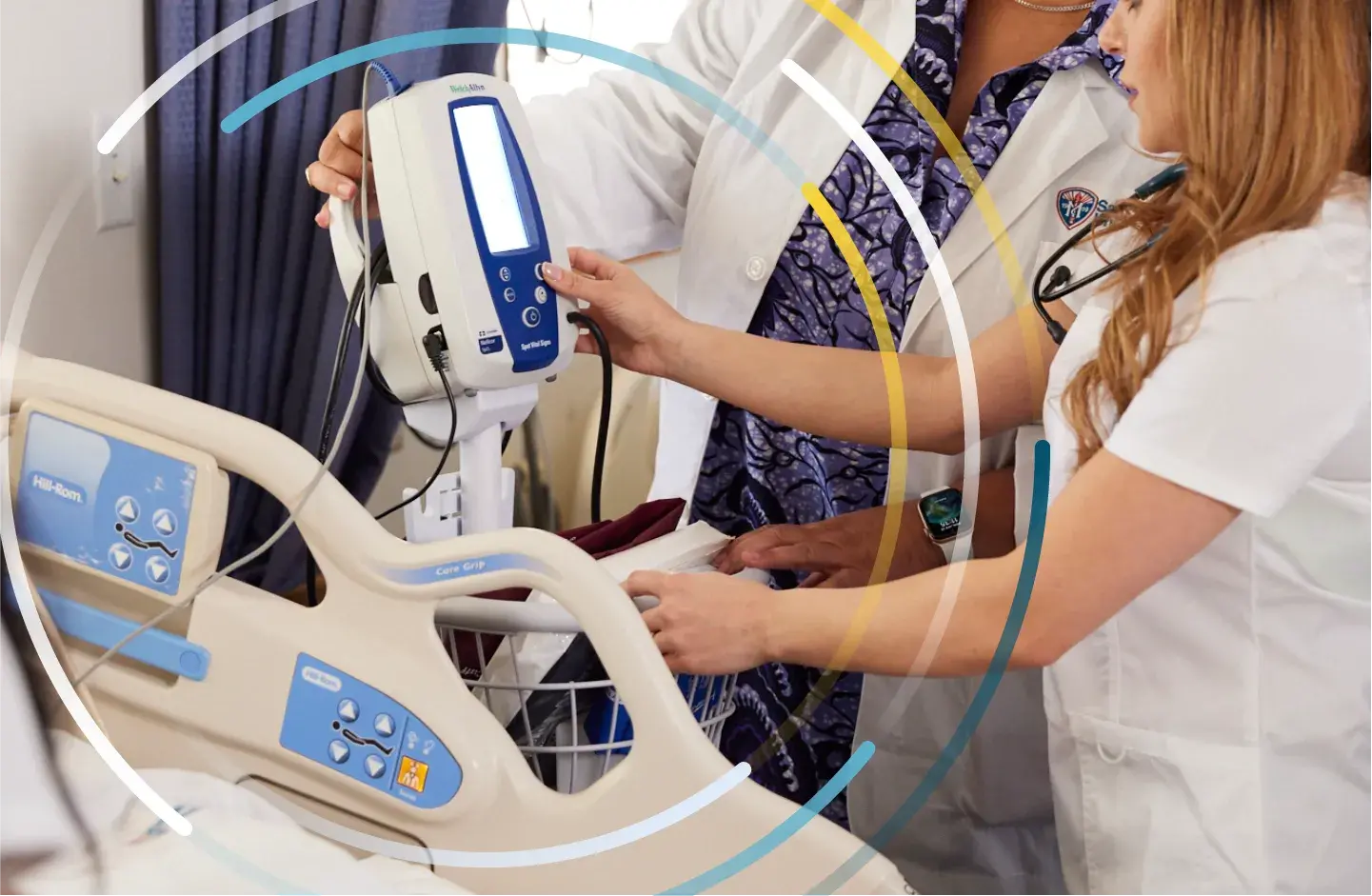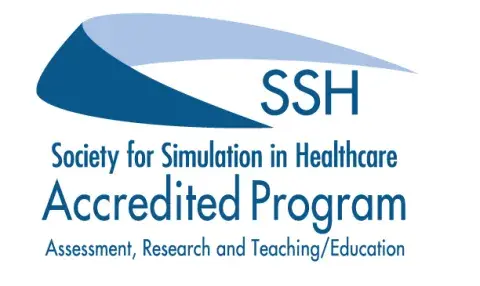
Health Sciences Simulation Center
We prepare students for a deeply serious endeavor: to save and improve lives. But that doesn’t mean our students can’t have fun while learning.
Here, in one of the West’s most advanced healthcare simulation facilities, SMU students, faculty, and working health professionals collaborate to respond to lifelike scenarios, try on different hats, and become better healthcare team members. The Health Sciences Simulation Center (HSSC) is integrated into all of SMU’s programs. At SMU, we offer the full range of simulation experiences, and patient safety and positive patient outcomes are at the heart of everything we do. We know what it takes to produce healthcare professionals who can be trusted with a life: practice, carefully guided, and lots of it. Providing that practice—in technical skills, medical and surgical procedures, critical thinking, decision-making, teamwork, leadership, and communication—is what the HSSC is all about.
Simulation-based learning creates:

The HSSC is accredited by the Society for Simulation in Healthcare
HSSC’s Guiding Principles for Simulation-Based Learning:
What do we mean by immersive learning? Immersive is the sense of the learner that “I am in the learning experience and I am practicing doing the things that I need to do better.” (Pagano, 2013, p13).
For SMU students, this means that “I am making decisions about a patient’s/client’s care. I am leading a team of healthcare providers. I am operating a medical device. I am interviewing for a job. I am intubating a patient. I am practicing and I am getting real-time feedback and I am getting better.”
There are many instructional approaches to immersive learning. The HSSC team specializes in designing, developing, implementing, and evaluating simulation-based learning (SBL), which can use computerized manikins (manikin-based simulation) and standardized patients. Reflection and assessment are crucial parts of simulation-based education. After completing sessions, participants debrief through discussion and review audio and video of scenarios. This immediate feedback reinforces learning and allows students to safely learn from mistakes.
At each SMU campus, the HSSC clinical skills labs and simulation suite are equipped to implement and record any type of simulation technique, as well as support most methods of technology-enhanced teaching. In our clinical skills labs, you will use the same equipment used at hospitals to practice tasks like inserting IVs, giving injections, and performing a head-to-toe health assessment. Task trainers allow you to demonstrate your mastery of those specific skills.
Role-Play with Actors
The best preparation for the human side of healthcare is practice with real people. That is why SMU engages actors as Simulated/Standardized Patients (SPs). An SP is trained to portray a patient in circumstances like those that might occur in a real clinical setting. In addition to the physical symptoms of a specific medical diagnosis, an SP is prepared to tell stories, express emotions, show stress, and exhibit attitudes toward the medical profession. The portrayal should be so convincing that even a skilled clinician might think the performance is real.
SPs need a good memory, excellent communication skills, and a flexible schedule. The HSSC team will provide training.
Interested in acting as a Standardized Patient? Let us know. A member of the HSSC team will contact you.
Simulation-based learning enhances interprofessional practice and education (IPE) by immersing students in team-based scenarios in a realistic healthcare environment. The scenario is immediately followed by a guided debriefing with a faculty member trained in IPE and who leads the reflective discussion. Our educators work directly with IPE teams and academic faculty seeking to integrate IPE into the curriculum.
Students and professionals from UC Berkeley, UC San Francisco, along with Cal State East Bay, San Jose State, San Francisco State, and John F. Kennedy universities often interact in these IPE courses, further enriching the experience.
More information on IPE at SMU
The HSSC Mission:
The HSSC promotes immersive learning for healthcare professionals in an environment where simulation-based education is purposefully integrated into programs. Through a collaborative, interprofessional approach, we provide opportunities to acquire knowledge based on best practices and to positively transform the experience of learning.
We Value:
HSSC Guiding Principles:
See for yourself. Take a tour of the Health Science Simulation Center.
Explore our state-of-the art learning facility.